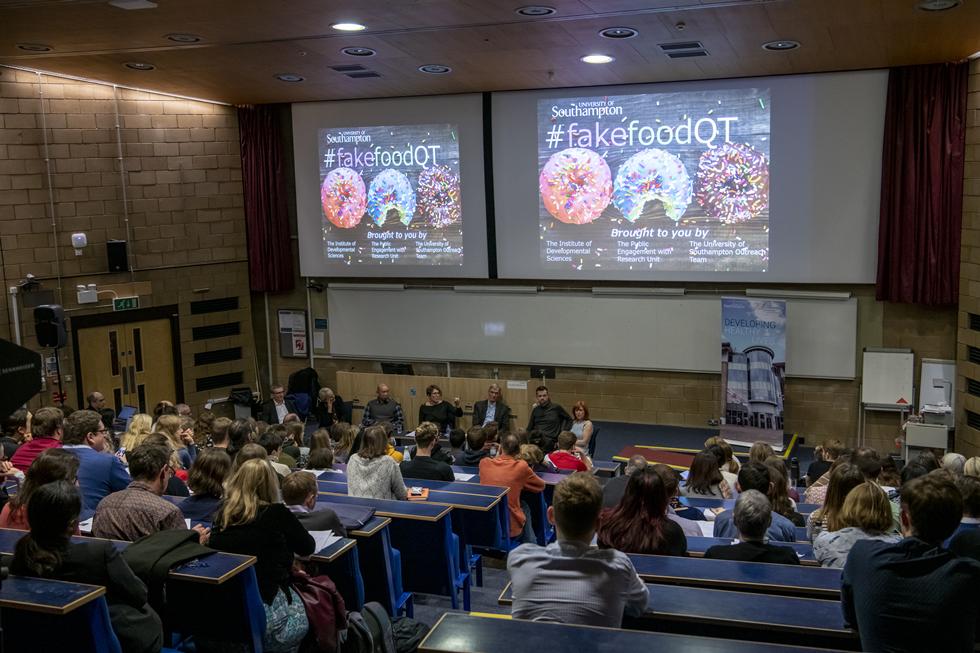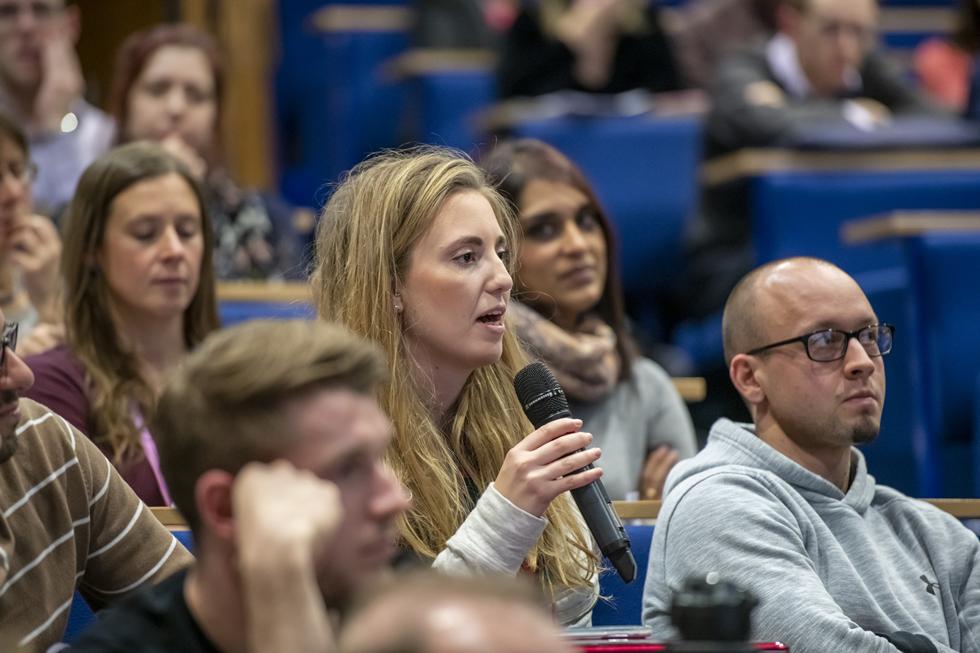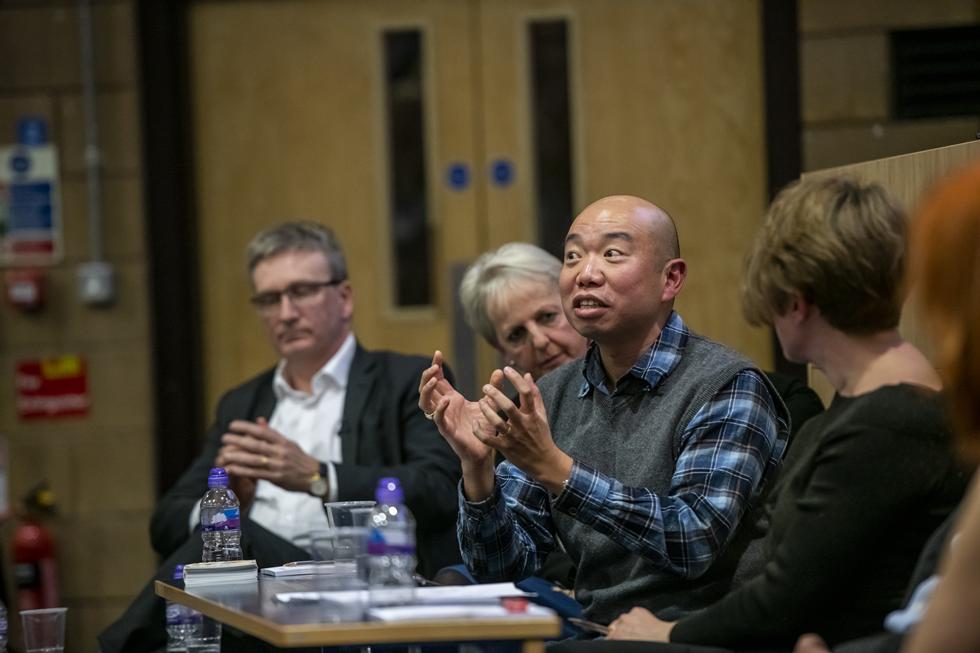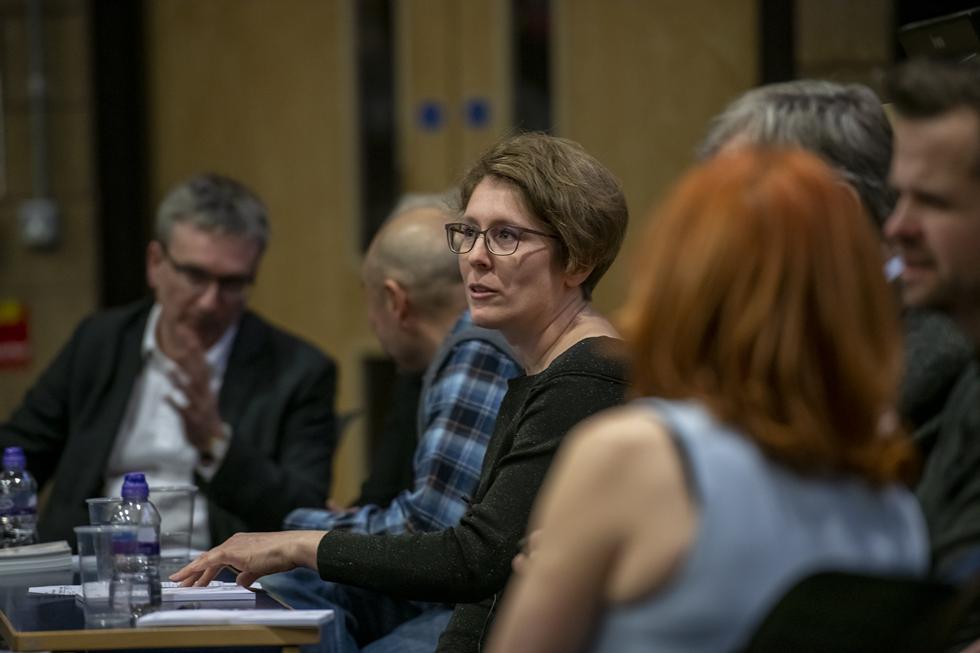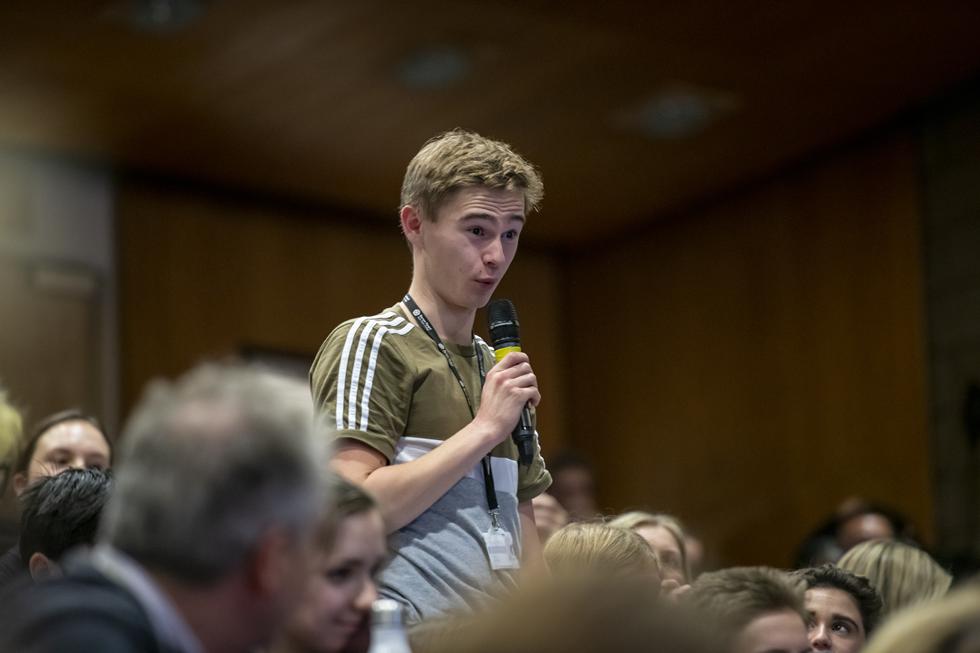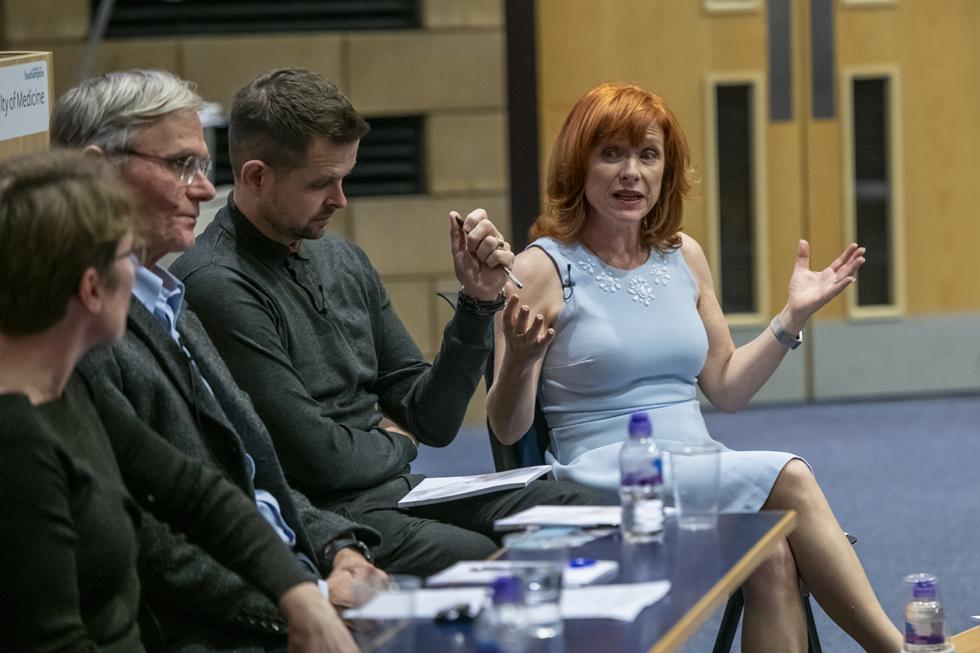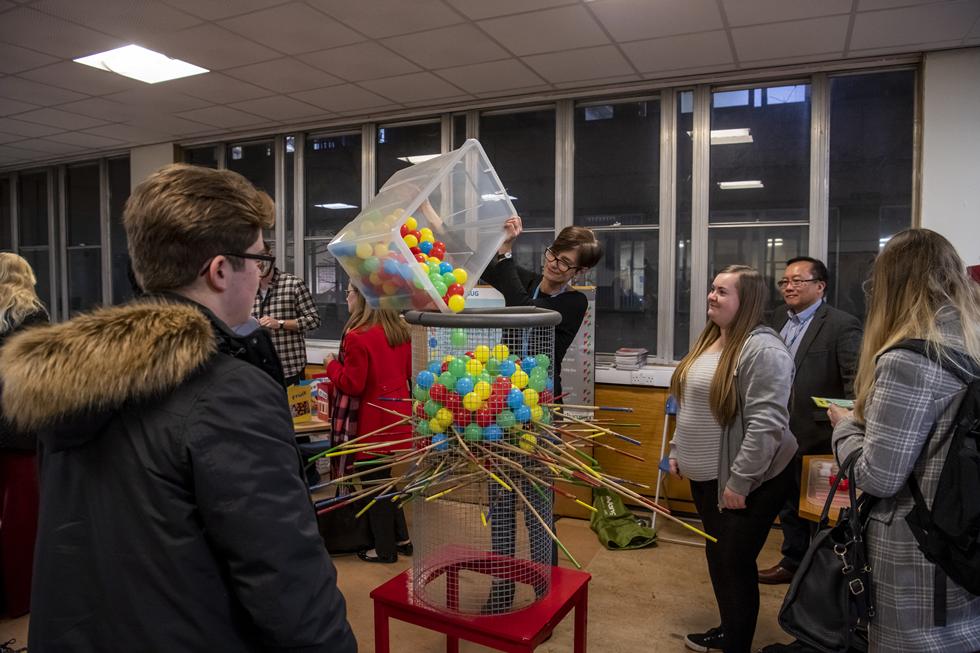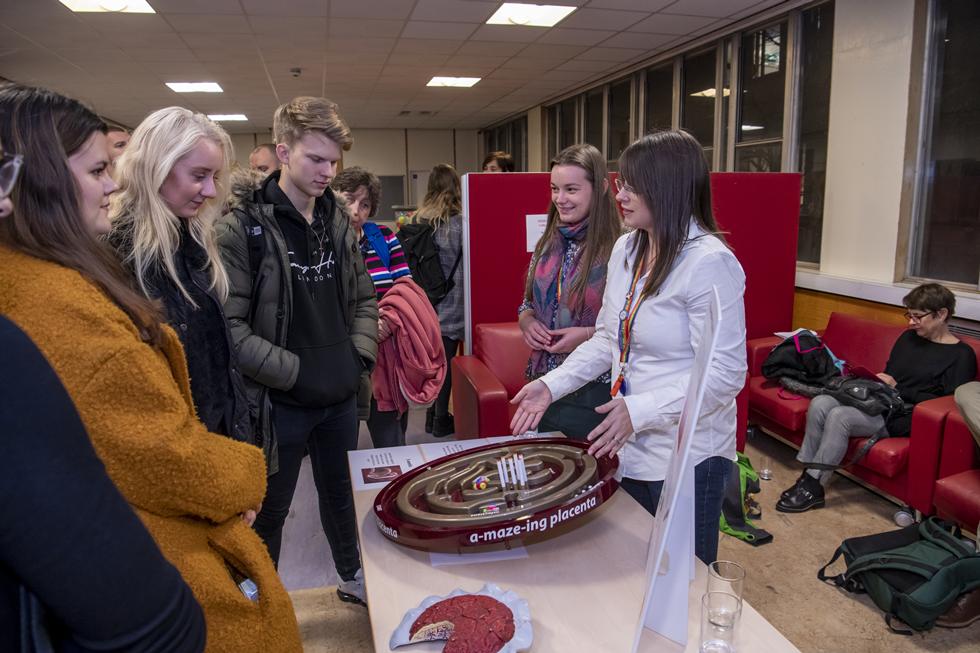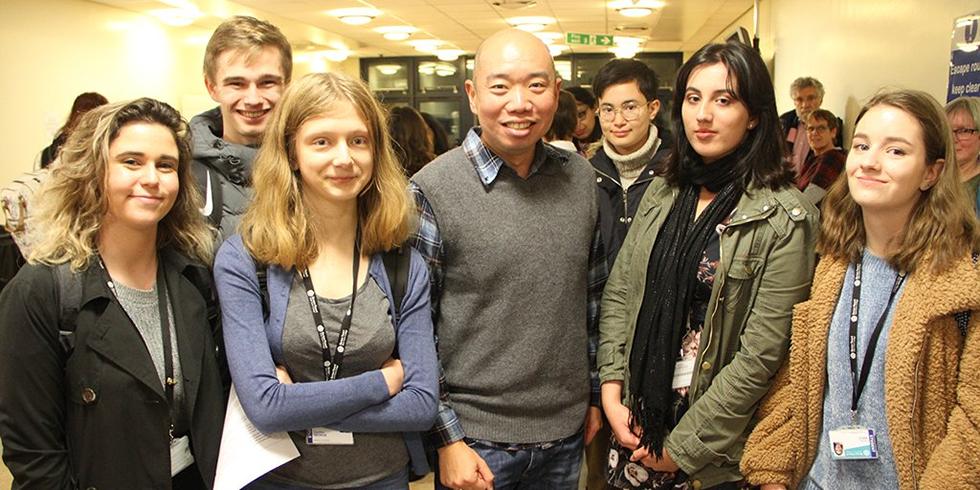‘Fake Food!’: no nonsense answers and debunking myths about food

Experts from medicine and science came together at the University of Southampton to explore the big food issues that impact on people from the very earliest points of development and across the life course.
The panel were put on the spot with questions from the audience, most of which came from state–sector colleges from across Dorset and Hampshire. They were challenged on issues relating to impact of parental food choices on their future children; how society consumes food and our body image; how our genes respond and interact with foods, food production and security ( “Are meat eaters destroying the earth?”) and even our right to medical treatment on the NHS (“Should treat food related diseases in people unwilling to make dietary changes?”).
The panel was chaired by Dr Lucy Green, Associate Professor in Developmental Physiology at the University of Southampton, and included:
Nathan Atkinson, former primary Headteacher; director of Sustainable Education; Creator of Fuel for Schools
Dr Sarah Jarvis MBE, GP; Clinical Director of patient.co.uk; medical broadcaster on shows including BBC’s The One Show
Prof Mark Hanson, University of Southampton Scientist; developmental health advocate; Prof Guy Poppy, Chief Scientific Adviser to Food Standards Agency; University of Southampton Ecologist
Prof Sian Robinson, University of Southampton Nutritional Epidemiologist; Registered Nutritionist
Dr Giles Yeo, Appetite and obesity scientist, author and BBC broadcaster including Trust me I’m and Doctor and Horizon.
Dr Green said: “It was a fantastic event with some great debate and questions from the audience. We wanted to put experts on the stage and involve members of the public in a no-nonsense discussion around big food issues that matter from the very earliest points of development and across the lifecourse.
“Opening up universities to young people with this sort of event allows them to see the science in action and get involved in the debate, but also it might just make them realise that a career in science or medicine could be for them too.
“Hearing questions answered and the opinion of leaders in a variety of fields is a valuable way to connect people with our science. And for us as scientists, hearing public opinion about what the important issues are for them and what they need in order to make scientifically-informed food choices is vital.
“We hope the event got the audience thinking about the science behind the health messages and encouraged them to think about their own health and wellbeing.”
The subject of food draws on several core strengths at University of Southampton from the Institute of Developmental Sciences research into Developmental Origins of Health and Disease (DOHaD), nutrition and stem cell biology, to the nutrition work at the NIHR Southampton Biomedical Research Centre, to work at MRC Lifecourse epidemiology Unit, and to ecology and plant / food security.
